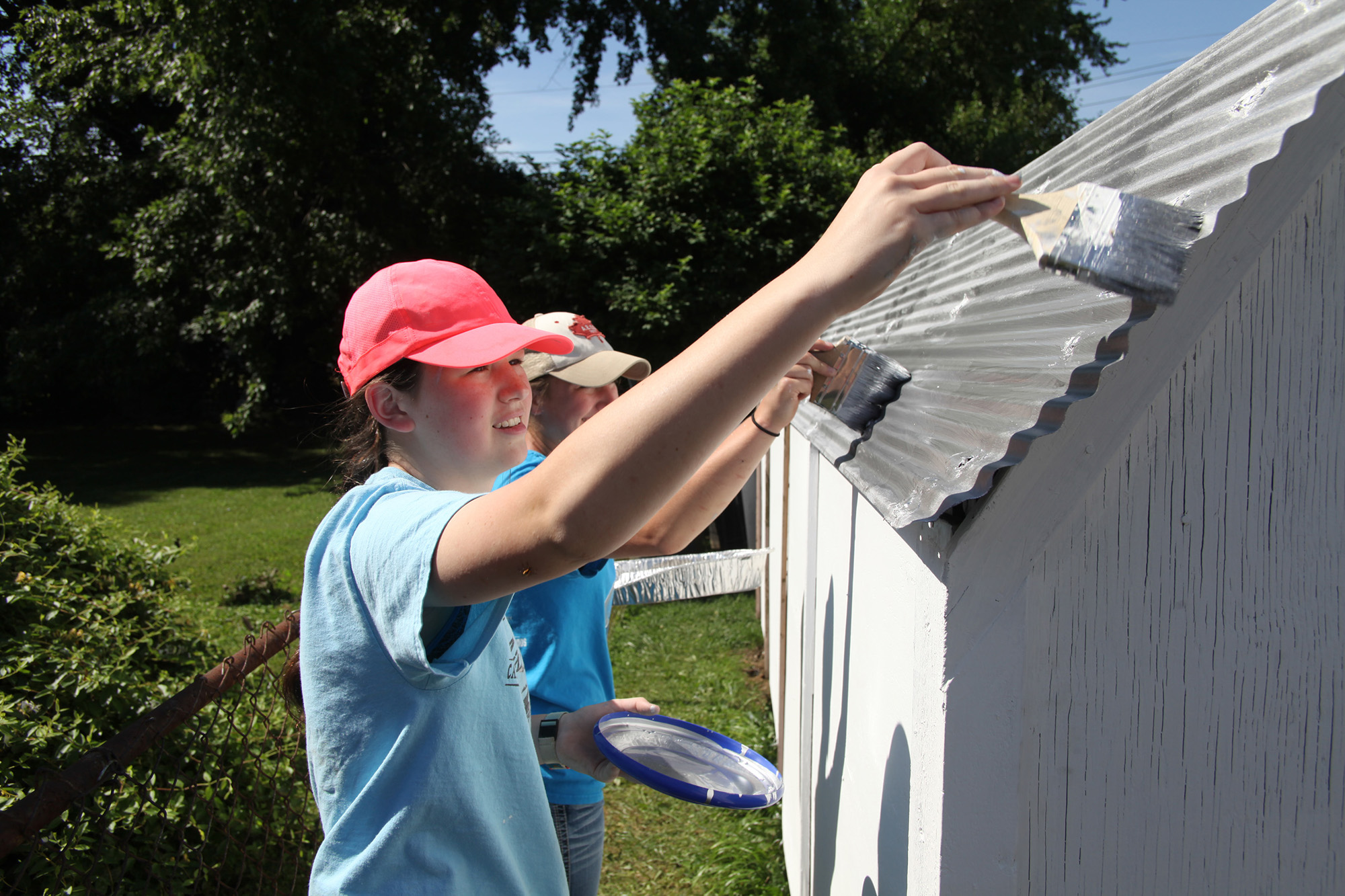
NASHVILLE (BP) — About a year ago, I was walking with my wife, Lynley, through our neighborhood. After we caught up on events of the day, the topic of pastoral families came up. We talked through the number of pastors and wives that we knew were struggling to endure in their calling. Lynley said, “I think they are just tired of living in the ‘glass house.’” I knew exactly what she meant. She and I had lived in that house for 17 years as we led two churches. We had experienced the spotlight on our personal Iives. The expectations. The strained relationships. The feeling that “Sunday is always coming.”

In light of that, we launched a podcast entitled, “The Glass House,” with the goal of bringing comfort to pastoral families. The feedback we’ve received so far has confirmed what we suspected – the struggle is widespread. Here are just a few of the themes that have arisen from our episodes so far – the “unspoken” needs of ministry families:
- The pain remains from people leaving.
Church leaders have described how devastated they have felt over the years when friends walked away from the church for what seemed like petty reasons. Christians often use terms like “church family” or “church home,” but they don’t remain loyal to their church when times are tough. Brothers and sisters in a biological family do not typically move away unannounced, never to return for holidays!
Through COVID, ministry families have experienced a deep sense of loss. They are weary of hearing about people attending another church because they did not agree with a mask policy, or they felt like the pastor should have been more outspoken on a hot button issue, or they were “getting more out of” sermons from the pastor down the street.
- The need for Christian counseling is greater than ever.
As Lynley and I have been open about our own counseling journey, we have been encouraged by the response from other ministry families and laypeople alike. Many couples have privately messaged us, asking for references for a counselor, admitting that they, too, have a need for some soul care.
Because ministry families absorb the hardship of the flock, they often neglect their own emotional health. Loneliness, hurt, sadness, anger, fear – these struggles cannot be shoved under a rug for long periods of time without producing damage.
- The pastor’s wife feels unseen.
“I have been a pastor’s wife for decades, and I have often felt like the invisible woman.” Those words came directly from a seasoned woman who had not only planted a church with her husband, but remained faithful to that flock for more than 40 years. Though she would not trade the rewards of the experience, she confessed that she often wrestled with hurt because she felt discounted in the eyes of other church leadership.
In the local church, it goes without saying that the pastor and his wife are a package deal. When you call a pastor, you are also calling a pastor’s wife. Generally speaking, pastors’ wives feel a pressure to be highly visible, to take on leadership roles, to be the first to fill in gaps when volunteers fail to show, to be diplomatic in times of conflict.
All of these expectations create a ubiquitous pressure to perform – to be what the church needs her to be. Without quality time with her family, a solid group of friends to support her, and perhaps a regular cadence of counseling, the resentment inside a pastor’s wife can easily manifest.
These are just a few observations from the past year of interactions with leaders. If you are living inside the glass house and these challenges resonate with you, I’d like to suggest a couple of ways to move forward.
- Start the process of counseling.
I am convinced that every pastor and his wife should spend some time in counseling each year. Even if there are no obvious crises taking place, the practice of looking within and opening up is crucial to staying in touch with your soul.
On some weeks, as Lynley and I have walked into counseling, I have wondered what in the world we would talk about since life seemed peaceful at the moment. Those sessions often surprised me. A little prodding around our inner lives exposed issues we didn’t even know were there.
Many state conventions now provide financial support for counseling services. Additionally, the North American Mission Board, in partnership with Focus on the Family, has a hotline you can call to get the support you need: 1-844-PASTOR1
- Take several consecutive weeks off from the pulpit.
In pastoring for 17 years, I can’t remember a single time I did this. I regret it. The weekly pressure to create a lifechanging, inspirational sermon is a tall task. The church will benefit when the pastor hits the “refresh button,” and yes, they will survive a short series from another communicator. It’s good for them, and good for the pastor’s family.
In those weeks off from the preaching ministry, set up lunches with joyful friends. Get some fresh air with the family. Read a moving biography or binge watch a documentary series. Be human.
Many years ago, John Maxwell declared that “everything rises and falls on leadership.” Within the context of the local church, this means the pastor and his wife, along with the ministry staff, form the nucleus of the cell. If those individuals are spiritually and emotionally strong, the body of Christ tends to follow suit. If they are not, the church may find itself battling illness.
And pastor, be reminded of the great proverb: “Guard your heart above all else, for it is the source of life.” Your self-care is not selfish. Take steps to get your joy back for the ministry and to enrich your marriage and your family. Your health – and your church – depend on it.
NOTE: Lifeway Research is doing a deeper dive on the pastor’s greatest needs and will release information in the coming months. The first installment was released Jan. 11.





















